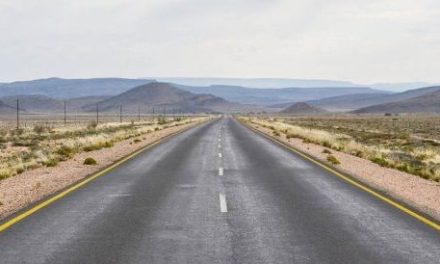
It’s the travelling outsider’s job to show you just how green the grass is under your feet

People who don’t fit in ● Scandinavian aid workers ● wealth as the route to ‘eccentricity’ ● the optimistic origin of rain forests ● joyous complaint ● disaffection & travel ● what to complain about in Sudan ● ingredients for the cultural melting pot ● comparative metaphysical botany
I don’t know if you have noticed this but just about everywhere you go, with the possible exception of some of the more fundamentalist neighbourhoods of Baghdad and Tikrit, there is invariably someone who doesn’t quite fit into the picture.
Naturally you get people who don’t fit in at all: Scandinavian aid workers with accents that sound like cream cheese on rye, sober guys at chug-a-lug competitions and guests without agendas at Republican fundraising dinners. This type of person is so jarringly obtrusive, that we just filter them out and they become part of the woodwork. It’s the people who very nearly fit, but actually don’t, whom everyone notices.
Now with prolonged exposure, the members of society who don’t actually fit in may become features of the landscape, particularly if they are wealthy enough to earn the status of ‘eccentric’, or if they join whatever religion earns local approval. If they don’t satisfy these criteria, they normally get blackballed by the local country club, ignored in the local bar, snubbed by the PTA, and just move on.
But, thanks to the mobility of capital and the comfort of long-haul flights, there is a class of travelling outsiders who doesn’t quite fit in, that is here to stay.
If the expression, ‘the grass is always greener…’ is to be believed, New York sidewalks must be paved with manure and the deserts of distant Mongolia must have sprouted rain forests overnight. No matter how far you are from anywhere and no matter how bleak and arid the apparent prospects, there is always someone who will tell you how wonderful your immediate environment is.
Unfortunately, this type of conversation always seems to happen while you are in the middle of a really satisfying rant about the government, the weather, taxes or even the price of milk.
Travelling outsiders are products of their societies. Perhaps they feel unwelcome at home. Maybe they feel that their voices are drowned out by the crowd. It could be that they need to escape from the daily grind and the perception of a long-lost freedom. Or is it that they feel that their contribution is undervalued?
Instead of accepting the status quo, or perhaps in frustration at their inability to improve the situation, they assure their outsider status, and come to draw strength from it by relocating. If the destination is chosen well, the outsider can become accepted as a stereotypical foreigner with foreign quirks, rather than an individual with frustrations.
It’s an interesting modern phenomenon, and one that is becoming more common as more and more people discover that relocation is merely a matter of moving money, if there is any, and getting on a plane.
Once upon a time the travelling outsider brought new concepts and forms of behaviour to countries, often at great personal risk. And if they returned, they took customs and ideas back with them. Today, whole communities of outsiders are developing in more popular locations. Yet the cohesion of these communities depends not so much on an appreciation of shared origins, so much as anger towards the cultures from which they originated.
Little has changed since the Mayflower set forth from Europe. No doubt, even in the most war-torn, famine-stricken regions of Sudan, there are clusters of northern European aid workers complaining about endless cold dark winters and terrible bureaucracy back home.
Whole nations have been founded and are still being forged on the basis of the attitudes of outsiders. Disaffection can breed ideals and ideals are the stuff of which futures are forged. It’s a natural ingredient in the delicious stew that is the cultural melting pot.
But perhaps the most important contribution of the travelling outsider is his or her ability to interrupt the rant, even inappropriately, and draw our attention to the grass that grows beneath our own feet and point out to us the weeds and bare patches that we might not have recognized in pastures we once thought were greener.











































